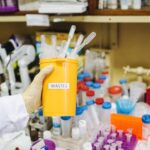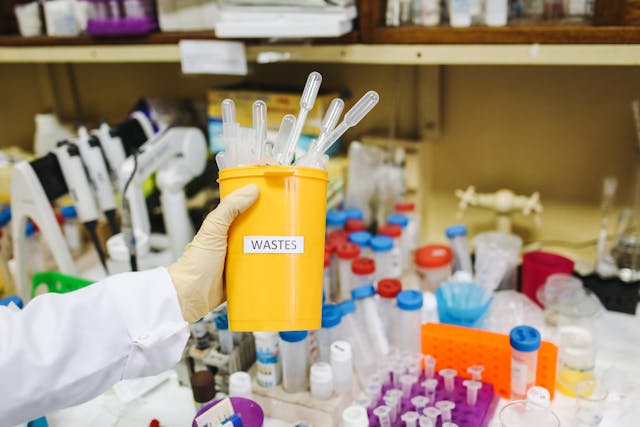The pharmaceutical industry, long characterized by its high costs, high risks, and slow pace, is in the throes of a profound revolution. The catalyst? Artificial Intelligence. Once a futuristic concept, AI is now a powerful, tangible force in research laboratories, attracting unprecedented levels of investment as it promises to dismantle the traditional barriers to developing new life-saving medicines.
A recent flurry of financial activity underscores this seismic shift. Just last month, biotech startup Etched.ai Therapeutics secured a monumental $1.5 billion Series C funding round, one of the largest private investments in biotech history, to advance its AI-generated pipeline for neurodegenerative diseases. This follows hot on the heels of tech giant Nvidia’s announcement of a $500 million fund specifically targeted at AI-driven drug discovery companies, a clear signal that the world’s leading chipmaker sees biology as the next frontier for computational power. These are not isolated incidents but data points in a massive, global trend.
The Promise: From a Decade to a Discovery
The traditional drug discovery process is a grueling marathon. It can take over a decade and cost more than $2.5 billion to bring a single new drug to market, with a staggering 90% failure rate in clinical trials. AI is poised to attack this inefficiency from every angle.
Machine learning algorithms can sift through billions of molecules in silico (in computers) to identify potential drug candidates in days, a task that would take humans years. AI models are predicting how these molecules will interact with specific protein targets in the body, de-risking the initial stages of research. Furthermore, AI is revolutionizing clinical trials by analyzing vast patient datasets to identify ideal candidates, predict potential side effects, and even design more efficient trial protocols.
“The old model was like searching for a needle in a haystack with a blindfold on,” says Dr. Anya Sharma, CEO of SynthBio AI. “AI doesn’t just remove the blindfold; it gives us a powerful magnet. We can now simulate biological processes, predict toxicity, and design novel compounds with a precision that was pure fantasy just five years ago. This isn’t just an improvement; it’s a paradigm shift.”
The Market Responds: A Gold Rush in Biotech
This paradigm shift is translating into explosive financial growth. The investment community, from venture capital firms to big pharma’s corporate venture arms, is pouring money into the space, betting that AI will be the key to unlocking future blockbuster drugs and therapeutic breakthroughs.
The Artificial Intelligence in Drug Discovery Market was valued at USD 1.92 billion in 2024 and is expected to reach USD 15.50 billion by 2032, growing at a compound annual growth rate (CAGR) of 29.89% from 2025-2032. This staggering projection, from a recent market analysis, highlights the immense confidence in the sector’s long-term viability. The report attributes this growth to the mounting pressure to reduce healthcare costs, the increasing adoption of cloud-based applications, and the overwhelming abundance of complex biological data that only AI can effectively interpret.
The investment is flowing into two primary channels. First, there is a boom in pure-play AI-biotech startups, like Relay Therapeutics and Recursion Pharmaceuticals, which are building their entire discovery pipelines around proprietary AI platforms. Second, and equally significant, are the deep-pocketed partnerships being forged between these nimble startups and established pharmaceutical titans.
Companies like Pfizer, Johnson & Johnson, and AstraZeneca are no longer just watching from the sidelines. They are actively entering into multi-billion dollar collaborations, leveraging external AI expertise to rejuvenate their own R&D efforts. In 2023 alone, the total value of such disclosed partnerships exceeded $5 billion, a clear indicator that big pharma views AI not as a threat, but as an essential lifeline.
Quantifying the Impact: Stats Painting a Clear Picture
The narrative is powerfully supported by data:
- AI can reduce pre-clinical drug discovery timelines by up to 4 years, according to a study by the Boston Consulting Group.
- The use of AI in target identification and validation is projected to increase the success rate of drugs entering Phase I trials by over 15%.
- Over 280 AI-powered drug discovery programs were in various stages of development as of the end of 2023, with over two dozen having entered clinical trials.
- Venture capital funding for AI in biotech surpassed $8 billion globally in 2023, more than double the amount from just two years prior.
Challenges on the Horizon: Data, Talent, and Trust
Despite the euphoria, the path forward is not without its obstacles. The “garbage in, garbage out” principle is acutely relevant in AI-driven science. The quality of an AI’s prediction is entirely dependent on the quality, quantity, and standardization of the biological data it is trained on. Data siloing and proprietary formats remain a significant hurdle.
Furthermore, a fierce war for talent is raging. The individuals who possess deep expertise in both machine learning and molecular biology—the “bilingual” scientists—are a rare and highly sought-after commodity, commanding premium salaries and creating a bottleneck for rapid scaling.
Perhaps the most significant challenge is regulatory. The U.S. Food and Drug Administration (FDA) and other global regulators are grappling with how to evaluate and approve drugs discovered through “black box” AI algorithms, where the precise reasoning for a molecule’s selection may not be fully transparent. Building a framework for trust and validation is critical for the long-term success of the field.
The Future is Algorithmic
The convergence of biology and artificial intelligence is no longer a speculative future; it is the dynamic present of medical research. The billions of dollars being invested are a testament to a widely held belief that AI will fundamentally make medicine more precise, more personalized, and more accessible. While challenges around data, talent, and regulation persist, the momentum is undeniable.
As Dr. Sharma concludes, “We are standing at the dawn of a new era. The drugs of the next decade will not be found by chance alone; they will be designed, optimized, and brought to patients faster because of intelligent algorithms working in concert with human brilliance. The investment pouring in today is the fuel for the medical breakthroughs of tomorrow.” The race to reinvent drug discovery is on, and its primary engine is artificial intelligence.














